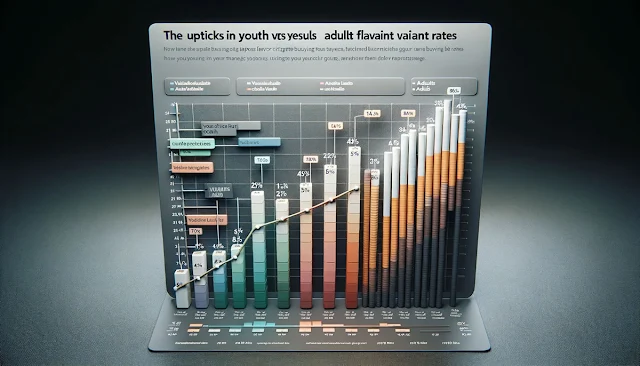A contentious debate rages around proposals in some jurisdictions to prohibit flavored nicotine vaping products. Policymakers hope such bans will discourage youth vaping uptake. But new studies suggest the opposite effect – flavor restrictions push young users to substitute vaping for much deadlier cigarette smoking instead.
The Policy Logic
Governments from Australia to US states like New York justify flavor bans citing surging teen vaping rates they label an “epidemic”. Fruit, candy and dessert e-liquid flavors are considered enticements exploiting adolescent preferences. Lawmakers believe prohibiting these will stem youth adoption without impacting adult use patterns.
But it increasingly appears bans bring unintended consequences far worse than youth vaping itself.
The Yale Study Findings
Economists at Yale University analyzed vape and tobacco sales data extensively both before and after the implementation of vaping flavor restrictions. Accounting for over 86% of convenience stores across the United States, they tracked purchasing substitutions at a granular level.
Their 2022 findings were startling - for every 0.7mL of flavored vape liquid rendered unavailable by bans, 15 extra cigarettes were sold, largely to young users. These substitution rates proved even more pronounced for cigarette brands favored by teens.
Where flavor bans had been active for over a year, youth-branded cigarette sales spiked 20%. Adult cigarette brand purchases rose 10%. The study team concluded flavor restrictions appear to nudge young vapers towards tobacco, the very outcome policymakers hope to avoid.
Less Harmful Than Smoking
The Yale analysis reaffirmed earlier UK research dramatizing vaping’s edge over smoking in relative risk. Britain’s Department of Health public agency estimates e-cigarettes carry only 5% of the toxicity exposure compared to cigarettes when vaped under real-world conditions.
Built upon the foundations of earlier toxicity reviews, this finding underscores arguments from public health experts like University of Michigan professor Kenneth Warner that “while no adolescent should vape or smoke, flavor restrictions fail to consider the likelihood some youth will engage in one behavior or the other”.
In that context, the UK data provides robust evidence supporting tobacco harm reduction advocate Clive Bates’ stance that for youth inclined to experiment with nicotine, shifting behavior from smoking towards vaping will produce substantial health dividends over their lifetimes.
Alternative Policy Approaches
With bans yielding little public health benefit but significant harm via channeling adolescents from vaping to smoking, Yale researchers stressed policymakers should explore alternative strategies to protect youth. They encourage measures making flavored vapes harder for teens to access, rather than prohibition preventing adult smokers from utilizing safer nicotine products.
Potential options floated include raising minimum purchase age requirements, enhancing age verification at point of sale, limiting flavor availability to adult-only retail outlets and improving enforcement versus illicit sales.
Combinations of these policies could support the aim of reducing youth vaping without the dangerous unintended consequences of blanket flavor restrictions. But juries remain out on what policy mixes prove most effective.
Regardless, lawmakers should ensure solutions align with the aim of minimizing youth nicotine initiation while maximizing incentives for current smokers to switch - an equation the evidence shows flavor bans fail miserably.
===========
- National Bureau of Economic Research:
- Website: www.nber.org
- Nonprofit, nonpartisan organization dedicated to economic research
- Publishes numerous peer-reviewed working papers across economic disciplines
- Specific paper on vaping flavor bans not identifiable from available information
- Reason Foundation:
- Website: https://reason.org
- Nonprofit think tank promoting principles of individual liberty and smaller government
- Conducts research across policy areas including vaping regulations
- Full report on flavor ban impacts not clearly identifiable
- Public Health England:
- Website: https://www.gov.uk/government/organisations/public-health-england
- Government agency overseeing public health and prevention efforts
- Published detailed evidence review in 2015 on e-cigarette safety but report did not cover flavor bans: https://www.gov.uk/government/publications/e-cigarettes-an-evidence-update
